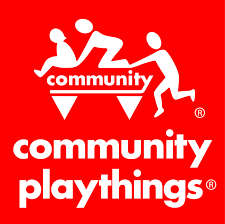Core Standards in Kindergarten
| May 2010The Common Core Standards developed by the National Governors Association and the Council of Chief State School Officers raise the bar of academic achievement for young children. They do this in spite of, rather than in the service of, what we know about the ways that young children learn. They seem to be based on the notion that workers need a set of precise skills and that we can “backward design” a system of education by defining what children must know at each grade level. Although I have grave misgivings about the overall attempt at codifying national standards, I am most concerned about the way that these standards make unreasonable demands on the kindergartners that I teach each year. Allow me to use young Gabe as an example.
Gabe is a bright little boy in my kindergarten class with sparkling blue eyes and loads of enthusiasm and energy. He knows just about everything that there is to know about fire engines and rescue vehicles. He can stand before a classroom of five-year-olds, show his detailed drawings of a ladder truck, and describe how it is used by firefighters when they attack a fire. Over the course of this school year Gabe has taken just about every book on firefighting and fire equipment out of the school library. Gabe is not yet secure, however, in the connection between the letters of the alphabet and their sounds, nor is he able to count beyond the number 15 without becoming confused and repeating himself. This is in spite of daily classroom experiences and instruction to support such learning, differentiated for his current level of achievement.
I am faced with a challenge. I know from more than 30 years of experience as a kindergarten teacher that there’s nothing wrong with Gabe—that he will learn to read and count perfectly well, given time and encouragement. But he has not met the standards that have been created to guide kindergarten instruction and learning. This child will have a failing report card if I cannot help him to master these skills. In spite of my long experience, I am unsure of myself as I am forced into an increasingly didactic role with children like Gabe. In all likelihood I can get Gabe to develop these skills, but at what cost? My understanding of kindergarten teaching and research on early learning leads me to nurture and support this child as he makes his early forays into literacy and numeracy by way of his passion. The standards, though, press me to get him to perform a set of predetermined tasks. The standards seem to be addressing the skills without recognition of the developing child who must make sense of these skills.
Increasingly, kindergarten teachers are faced with a double bind. Our knowledge of child development and early learning shows us that children like Gabe need time to develop skills by way of their deep interests, thus keeping alive their motivation to learn. And yet the standards (and those who hold children and teachers accountable for achieving them) are telling us that Gabe and his teacher are failing. We know that development does not always proceed at a steady pace along a defined pathway. The Core Standards proposed by the National Governors Association and the Council of Chief State School Officers are sorely in need of input from skilled researchers and teachers who have experience with young children in classroom settings. Children like Gabe should not be labeled as failures just as they embark on what should be a journey of confident discovery.






